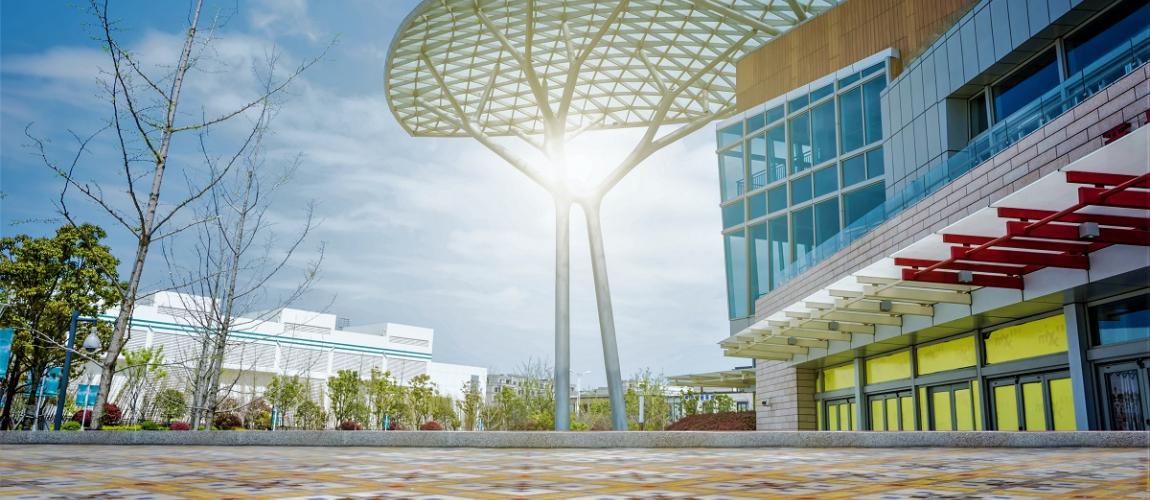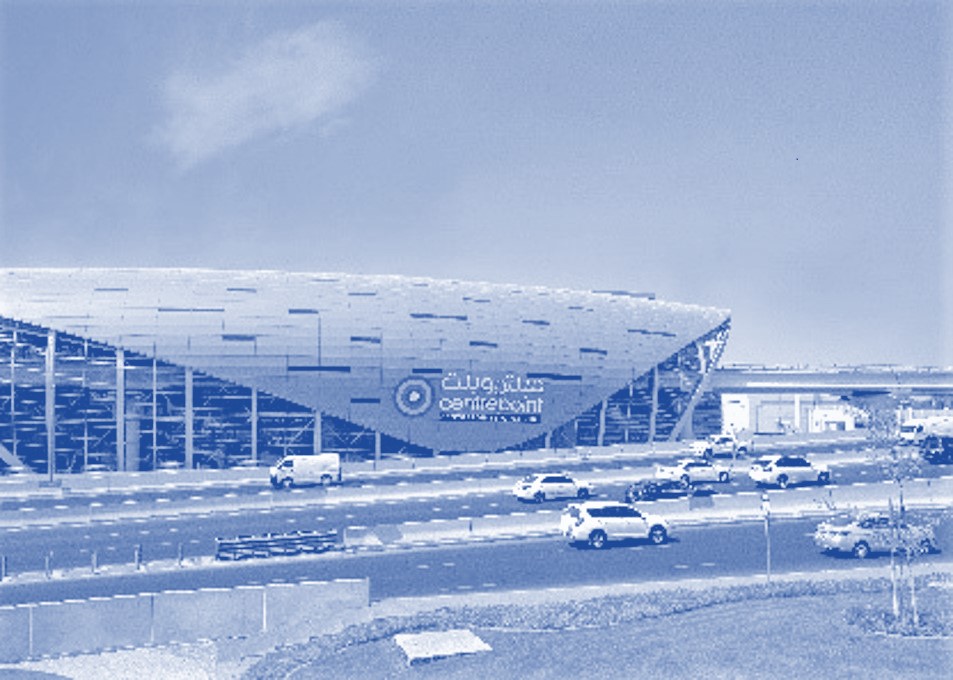Station Naming Rights, Dubai

Photo Credit: Image by evening_tao on Freepik
On this page: See examples of how naming rights can leverage city icons to connect with consumers. Read more below, or visit the Guidelines on Innovative Revenues for Infrastructure section and the Content Outline, or Download the Full Report.
Project Summary: Background In a similar way that advertising and marketing leverages high footfall areas, naming rights can leverage city icons to connect with consumers. By offering naming rights to reputed brands, governments can monetize the iconic image of infrastructure assets and engage reputable brands to leverage value from naming rights for brand recall and positive brand association. However, naming rights for city icons such as stations need guidelines that align naming rights with community values. Project Structure Community-orientated value creation The Roads and Transport Authority (RTA) plans and provides an integrated transport system within Dubai and connects Dubai to other Emirates of the UAE and neighboring countries to achieve Dubai's vision & serve the vital interests of the Emirate.1 RTA operates public buses, metro and tram, taxis, marine transport, and inter-city transport. Trains 53 stations 113.63 million Buses 156 bus routes 18 stations 95.42 million Trams 11 stations 3.65 million Source: RTA, 2020 With its Red and Green lines, Dubai Metro has 8,112 sqm of total retail space, 200 retail outlets, 228 ATM machines, and 90 metro kiosks.2 In 2008, RTA launched the "Dubai Metro Naming Rights Project" that would sell naming rights for 23 out of 53 stations (excludes stations with historical landmarks). Naming rights packages include collateral material, signage inside the station, signage outside the station, and inside the trains. Naming Rights in Dubai Stations Source: RTA, 2022 What sets it apart? Clear articulation of benefits for users and beneficiaries of Naming Rights Program: The Dubai Government clearly states the following as objectives of the Metro Naming Rights Program, clarifying the value of naming rights for users and beneficiaries.3 Differentiated offering: The RTA has positioned the Dubai Metro Naming Rights as an opportunity for brand owners to own naming rights, supported by high-tech and interactive digital marketing that could result in optimal engagement rates and potentially higher revenue opportunities. Key players for delivering improved services RTA was established in 2005 as a public entity with an independent corporate body and full legal capacity to perform all business and actions to achieve its objectives. Under its Dubai Naming Rights Program, RTA adopts evaluation criteria to select companies to associate with. For example: In 2010, RTA partnered with Hypermedia for metro advertising management, including planning advertising spaces and designing, operating, and marketing advertising services at stations, trains, and lines of the Dubai Metro (Red & Green Lines and Route 2020) for ten years.5 Mechanism for Maximizing Funding for Infrastructure As an asset owner, RTA generates additional revenues from naming rights to pay for improvement of stations, lines, facilities; services expansion; and additional maintenance. The community benefits from improved service without having to pay higher taxes. Based on RTA's bid form, naming rights has a minimum contract term of 10 years. Bidders must quote a first-year fee (annual inflation increase is applied) and specify a payment scheme. RTA suggests a 30% upfront fee based on the total contract amount upon signing the contract.6 The sale of naming rights for Dubai Metro stations generated a revenue of around AED 2 Billion (around USD545 Million) from 2010 to 2020.7 In 2008, when the naming rights program was launched, naming rights were bought at values ranging between AED 70 to 90 Million or USD 19 to 25 Million.8 Typical Business Model Lessons Learned Managing the risks Ease of implementation Other examples Kuala Lumpur Metro Naming Rights – Prasarana, a state-owned public transport provider in Kuala Lumpur (KL), launched the first naming rights project in South East Asia. The naming rights tender allows brands to bid for the right to transform KL LRT or monorail station to reflect their corporate identity and name the station. In return, Prasarna earns a fee and commuter experience is enhanced as part of the evaluation criteria for award. For example, companies participating in the naming rights tender can propose free Wi-Fi and upgrades to stations to enhance commuter experience.9 The naming rights can cost more than 10 Million RM or 2.3 Million USD for a 5-year deal.10 Singapore Sports Hub Naming Rights – The Singapore Sports Hub is a 35-hectare sports and recreation district established under a 25-year Public-Private Partnership agreement between Sports Singapore and SportsHub Pte Ltd. In 2013, OCBC signed a 15-year naming rights deal worth 50 Million SGD or 36 Million USD for naming rights to Singapore Sports Hub facilities such as the multi-purpose indoor arena and aquatic center. Revenue from the sponsorship will be re-invested into the hub's operation.11 Footnote 1: Explore RTA of Dubai Footnote 2: Explore RTA of Dubai Footnote 3: The Objectives of Dubai's Metro Naming Rights Footnote 4: The criteria applied in Dubai's metro naming rights application Footnote 5: RTA, Hypermedia sign 10-year partnership agreement to manage the metro advertising Footnote 6: Bid Form/Proposal for Dubai Metro Naming Rights Footnote 7: Naming rights for seven stations on Route 2020 up for grabs Footnote 8: Dubai raises Dh1.8b from Metro-naming rights and funding Footnote 9: PHAR launches first ever station naming rights programme in South East Asia Footnote 10: Prasarana's station naming rights programme gains traction among corporates Footnote 11: OCBC secures $50 million, 15-year naming rights deal as main sponsorship partner of Singapore Sports Hub
RTA Modes
Network information
Annual ridership (2020)

RTA
Increase revenues for improvement of stations, lines, facilities; services expansion; and additional maintenance.
Corporations
Exclusive right to put brand on a Dubai Metro station improving brand visibility.
Community
Improvement of public facilities and services without increasing taxes/ fares.

(a)
Concession agreement granting right to use and operate the assets to the Asset Operator
(b)
Naming Rights contracts
Asset Operator (sub-unit):
Operates naming rights program
Third-party strategic partner:
Advertising & Marketing expert hired by Asset Operator
Brand owners:
Naming right concessionaries who must comply with the standards
The Guidelines on Innovative Revenues for Infrastructure (IRI) is intended to be a living document and will be reviewed at regular intervals. They have not been prepared with any specific transaction in mind and are meant to serve only as general guidance. It is therefore critical that the Guidelines be reviewed and adapted for specific transactions.
To find more, visit the Innovative Revenues for Infrastructure section and the Content Outline, or Download the Full Report. For feedback on the content of this section of the website or suggestions for links or materials that could be included, please contact the PPPLRC at ppp@worldbank.org.
Updated: March 8, 2024
TABLE OF CONTENTS
I. Innovative Revenues for Infrastructure (IRI)
2. Introduction to Commercial Value Capture (CVC)
3. Applying CVC in Infrastructure Projects
2. Case Studies in CVC from International Experiences
• Advertising and Marketing in High-Footfall Public Areas
• Naming Rights in Stations and City Icons
• Commercial Uses of Virtual Spaces
• Commercial Uses of Physical Places and Virtual Spaces Created on the Back of Public Infrastructure
• Control of Real Estate Development Rights to Enhance Value
• Leveraging Climate Opportunities
• Usage of Facilities During Off-Hours or Off-Seasons
• Repurposing or Adaptive Reusing of Old Assets